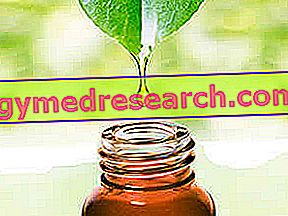Nowadays everyone needs vitamin supplements, essential supplements to keep stress, aging and survive the thousands of daily tensions. This is, in broad terms, the advertising message that is constantly transmitted to us by pharmaceutical companies. But what's true in all this? What is the real effectiveness of vitamin supplements? Are there risks of overdose?
Vitamin supplements are among the most advertised products in the field of food supplementation. Just turn on the television, take a ride through the shelves of a supermarket or enter a pharmacy to realize the real spread of the phenomenon.
Vitamins for short
Vitamins are organic substances present in the diet in small quantities (micronutrients) but essential for the normal functioning of the body.

Vitamins are found both in plant foods and in animal ones; many of these are thermolabile, that is they tend to decompose with heat. In particular, fat-soluble vitamins do not undergo significant decreases with cooking. Those of group B and vitamin C, on the other hand, are weaker to heat, light and contact with water. Only the intake of fresh and raw food therefore guarantees the maximum intake of vitamins.
In industrialized countries like ours the symptoms of vitamin deficiency are quite rare even though they may occur in: elderly subjects (poor diet, malabsorption), alcoholics (poor diet, liver disease, malabsorption), people undergoing chronic anticonvulsant therapy (folate deficiency D), women after repeated pregnancies with breastfeeding (increased need), subjects suffering from atrophic gastritis (deficit production intrinsic factor necessary for B12 absorption) or follow incongruous diets such as vegan (vit. Deficiency D and B12). In all these cases, vitamin supplements are very important to fill these gaps and to guarantee the subject an optimal physical efficiency.
Vitamin | Sources | Symptoms of deficiency |
| TO | Liver, spinach, broccoli, carrots, pumpkins, turnips, oranges, apricots, tomatoes | Night blindness, Dry mucous membranes, hyperkeratosis. |
| IS | Wheat germ, vegetable oils, legumes, fish, green leafy vegetables. | Anemia from erythrocyte destruction, neuropathy. |
| K | Green leafy vegetables, cauliflower, soybean oil, green tea. | Intestinal bacterial synthesis, bleeding. |
| D | Fortified milk, fish, | Rachidism (children) Ostomalacia (adults) |
| B able to protect us from aging and from many diseases related to it. The vitamins that have significant antioxidant properties are A, and in particular C and E. Vitamin C is found mainly in citrus fruits, tomatoes, strawberries, peppers, broccoli and potatoes. Vitamin E, on the other hand, abounds in wheat germ, vegetable oils, legumes, fish and green leafy vegetables. Combining a balanced diet with a supplement of these vitamins is a good way to ensure maximum functionality of the immune system by protecting the body from the damage of smoke, pollution and improper nutrition. OverdoseCan vitamins hurt?The risks of a vitamin overdose through nutrition are extremely low (unless someone decides, for example, to eat several liver steaks every day). Even the vitamin supplements on the market have been designed to remain below the levels considered dangerous. However nobody, apart from common sense, forbids a person to exceed the recommended doses and in these cases they could, in the long run, arise problems related to vitamin abuse. There are also particular pathological conditions in which vitamin supplements become dangerous (for example in the presence of kidney or liver disorders). For all these reasons it is advisable to consult a doctor or the same pharmacist before buying these products. The answer that will be obtained will be strongly influenced by the cultural baggage of the professional to whom it is posed. In fact, there are several schools of thought regarding vitamin intake. First of all we find the traditionalist who emphasizes the absolute uselessness of vitamin supplements and prefers to focus on the correct nutrition education of the patient. Passing through various intermediate stages one finally arrives at the one who for economic reasons or because he is really convinced of their importance, warmly recommends using these products. Everyone can base their beliefs on concrete factors since there are many researches in favor of one or the other theory. CONTINUE: Advice on vitamin supplements » |



